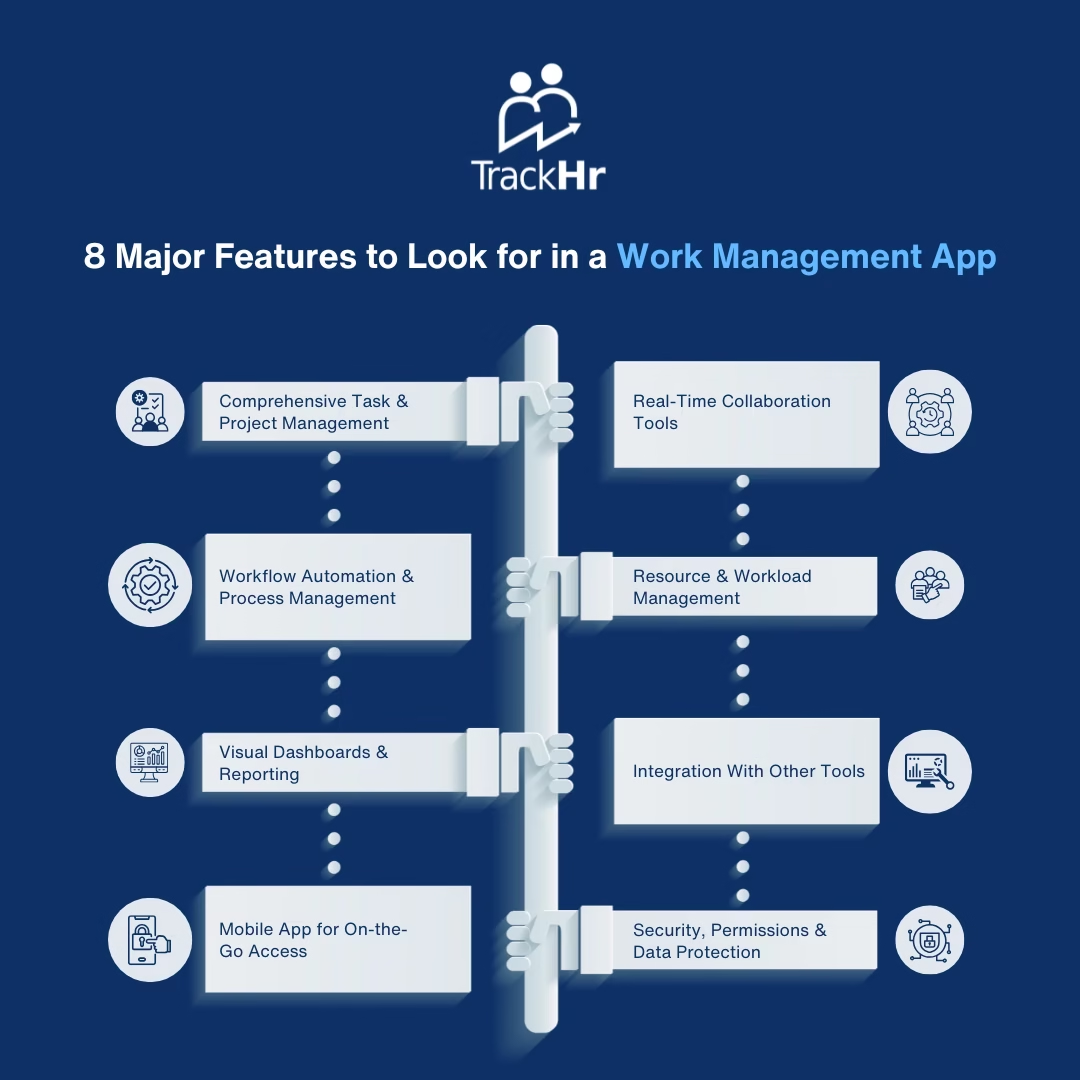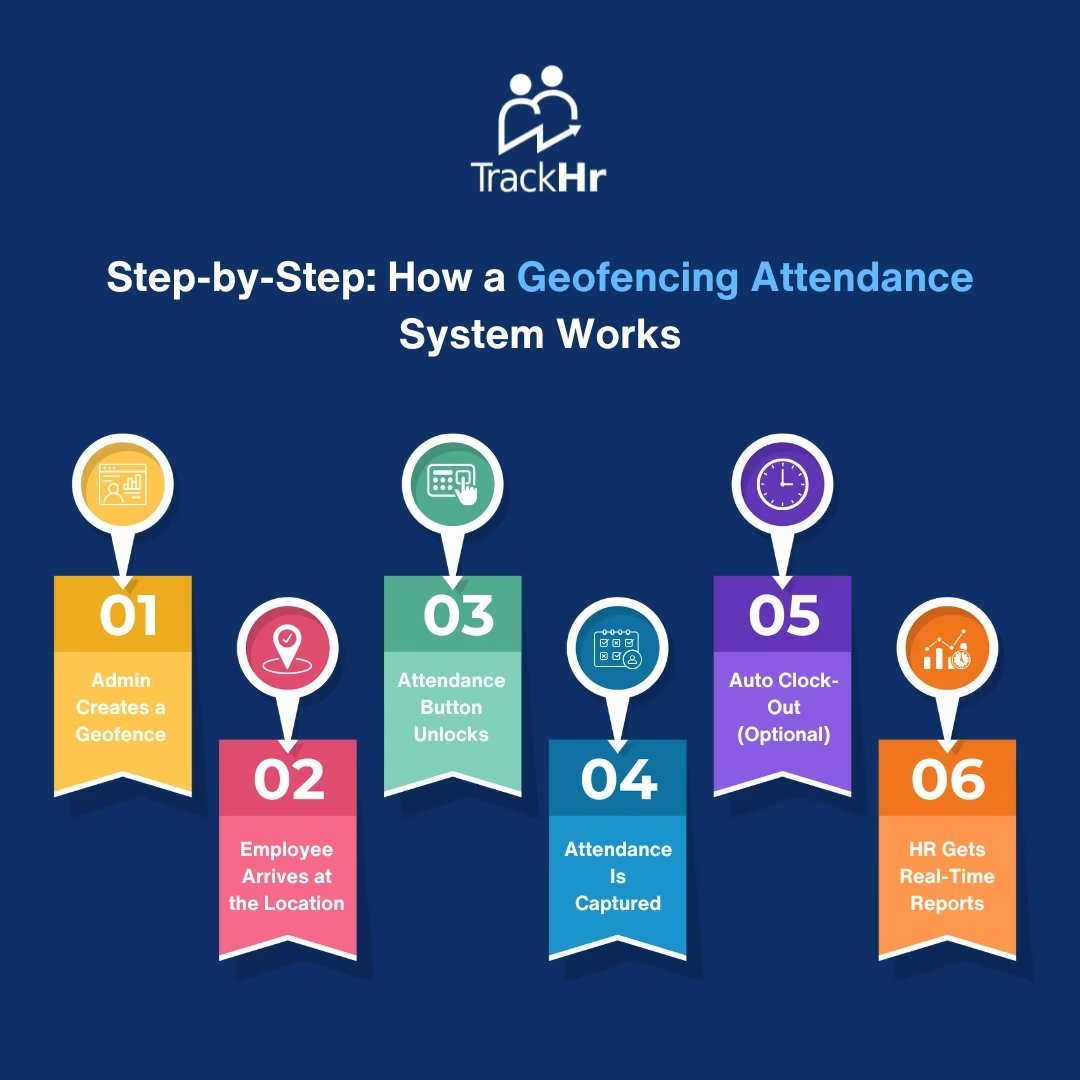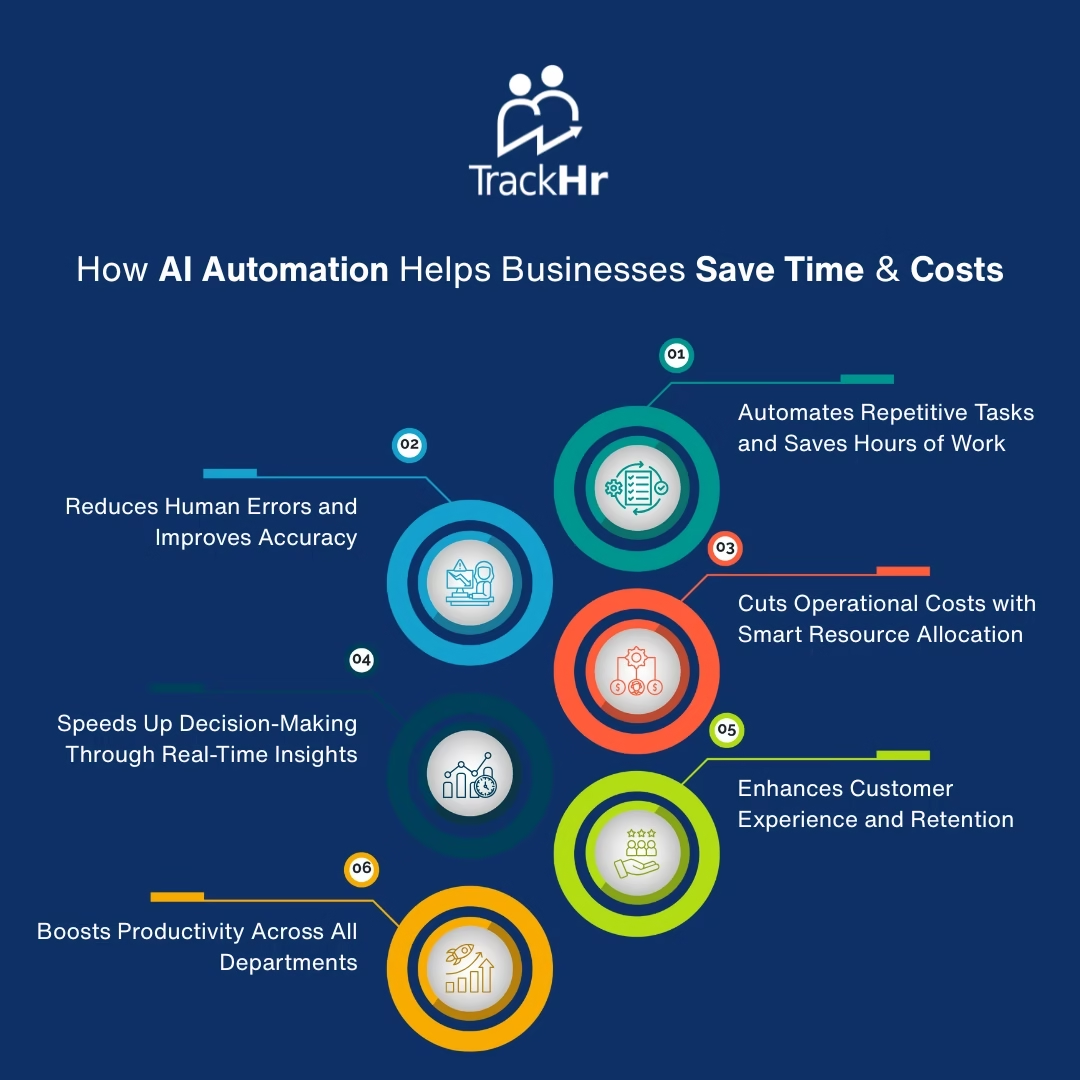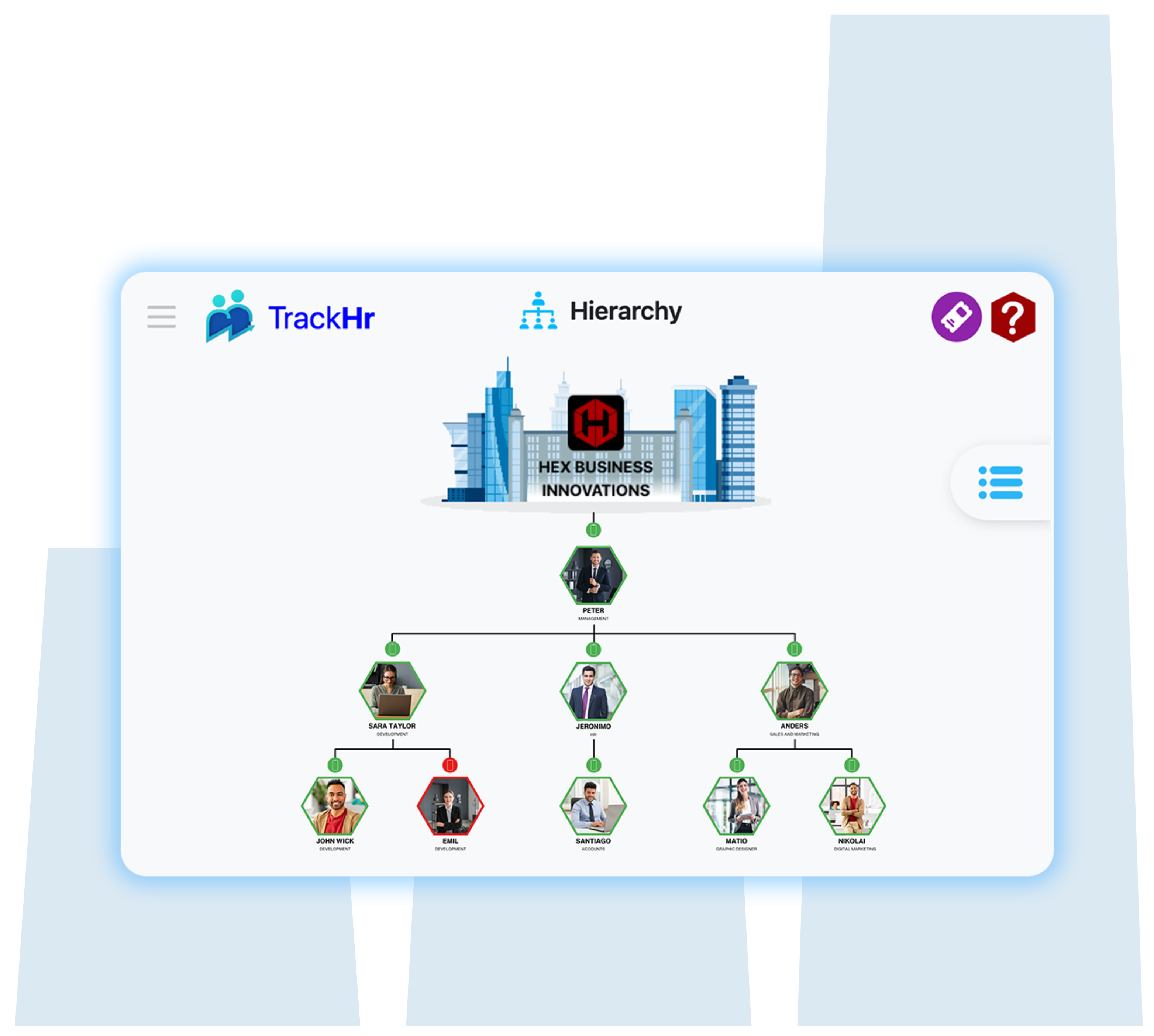Blog
How AI Helps Managers Make Data-Driven Decisions
- November 11, 2025
- 9:29 am
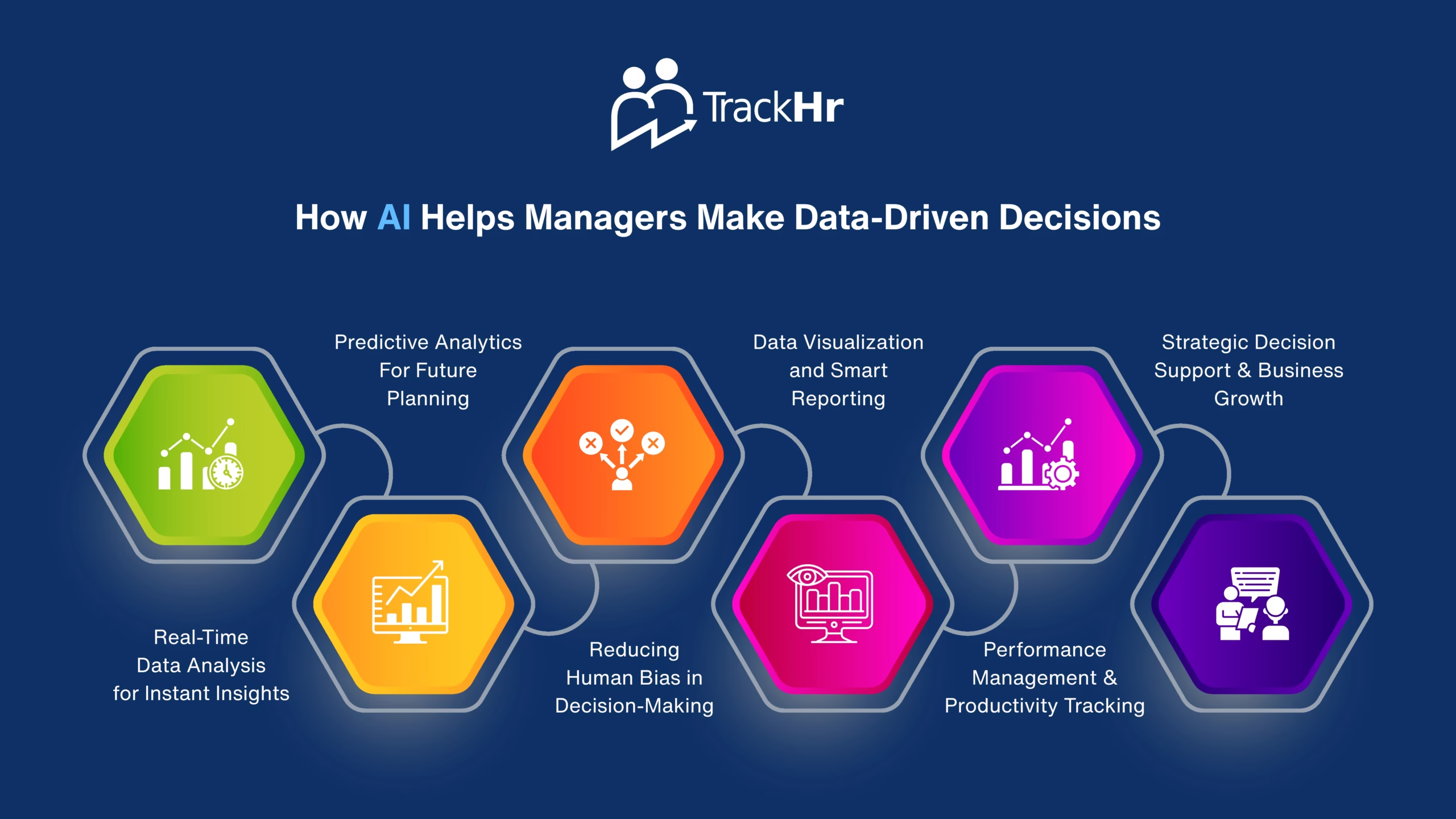
The contemporary business environment has made it more difficult to make decisions than ever. The managers have to analyze huge volumes of data, monitor performance, and react swiftly to emerging trends. This is where Artificial Intelligence (AI) comes in.
Through the use of information analysis, pattern recognition, and providing predictive information, AI can enable managers to make informed decisions that are smarter, faster, and more reliable based on data. AI is changing managerial decision-making in six major ways, which we will discuss.
1. Real-Time Data Analysis for Instant Insights
The processing of large quantities of data in real time is one of the best benefits of AI. AI keeps the managers constantly updated on what is happening in the operations and shows immediate insights, not waiting to receive monthly or quarterly reports.
Be it the performance of an employee in an HR system, the behavior of a customer in a CRM system, or the sales patterns in an e-commerce system, AI transforms real-time data into actionable information. This will allow managers to be responsive and efficient by acting in real-time.
2. Predictive Analytics for Future Planning
AI is an effective predictive analytics tool, and this is one of the factors that enable managers to make effective data-driven decisions. Through analysis of historical data and trends, AI can forecast future events like increased sales, market demand, or employee turnover.
The predictions allow managers to make proactive plans, distribute resources effectively, and minimize risks – turning uncertainty into opportunity.
3. Reducing Human Bias in Decision-Making
Managerial decisions may be made unconsciously and thus make mistakes or arrive at unfair decisions due to human bias. AI does not create this problem and uses data and measurable factors only.
An example is the use of AI in performance appraisals or hiring processes, where the tool uses its capabilities to objectively evaluate employees and candidates based on skills and past performance history, and analytics. This fosters equality, precision, and honesty throughout management decisions.
4. Data Visualization and Smart Reporting
AI-based dashboards will convert datasets that are not straightforward into easy-to-understand formats like charts, graphs, and interactive reports. Visual summaries enable managers to analyze trends and KPIs within seconds instead of having to analyze hundreds of spreadsheets.
This enhances teamwork and assists the leadership in communicating effectively on strategies. Visual information will simplify the knowledge, and decision-making will be more informed and assertive.
5. Performance Management and Productivity Tracking
The use of AI can help manage performance smartly by automatically processing employee data, including attendance and the quality of their output. On such platforms as TrackHr, AI will recognize the top performers, both efficiency and even a development plan.
Through this kind of understanding, the managers will be able to engage in balanced decision-making regarding promotions, rewards, or some form of training. This is precisely the way that AI assists managers with making data-driven decisions to increase productivity and engagement of employees.
6. Strategic Decision Support and Business Growth
AI not only processes information but also helps to make strategic decisions by identifying untapped opportunities. With the help of correlation, AI is able to determine the set of actions that can result in improved performance or increased revenue.
Such as, it may expose which marketing campaigns are creating the highest ROI or which departments need additional resources. Using AI-based suggestions, the managers will be able to develop data-driven strategies that will eventually lead to the growth of the business.
Conclusion
The strength of Artificial Intelligence is the ability to convert complex data into valuable insights. Predictive analytics to unbiased performance assessment AI assists the managers in making data-driven decisions, which are more accurate, efficient, and outcome-focused.
The transition to intelligent management, where the decisions are not suggestions anymore but informed by real-time and data-driven intelligence, is already the trend set by organizations that use AI-powered tools such as TrackHr.
Exhausted from managing performance management manually?


